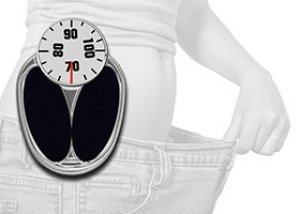
All iLive content is medically reviewed or fact checked to ensure as much factual accuracy as possible.
We have strict sourcing guidelines and only link to reputable media sites, academic research institutions and, whenever possible, medically peer reviewed studies. Note that the numbers in parentheses ([1], [2], etc.) are clickable links to these studies.
If you feel that any of our content is inaccurate, out-of-date, or otherwise questionable, please select it and press Ctrl + Enter.
Tricking the brain: a new way to cure obesity
Medical expert of the article
Last reviewed: 02.07.2025
 ">
">Scientists have found an interesting and effective way to cure obesity without resorting to diets or changing your lifestyle.
Leading American experts have discovered that if you block the vagus nerve, you can achieve a stable decrease in appetite and, as a result, lose extra pounds. The easiest and safest way to block it is by freezing.
Representatives of the College of Medicine at Emory University, the University of New York at Buffalo, and the Medical Center at the University of Pennsylvania have experimentally proven the possibility of using this method. A dozen patients with varying degrees of obesity took part in the study.
Each participant underwent a procedure using low temperatures: the posterior trunk of the vagus nerve was frozen - it is through it that the brain receives signals about the need to eat. Freezing occurred as follows: a needle was inserted into a certain area on the patient's back, through which cryogenic argon entered the tissue, freezing the necessary segment of the nerve. After the procedure, specialists monitored the subjects' well-being for three months.
According to the results of the research, all participants who underwent the procedure showed a stable decrease in food cravings. The patients' body weight decreased by an average of 3.6%, and their BMI decreased by 14%. At the same time, doctors did not note any side effects or health problems after the freezing procedure. Experts recognized this method of treatment as safe and clearly effective.
"Medical statistics claim that most schemes and programs aimed at stabilizing body weight ultimately do not lead to the desired result - especially if the program provides for any restrictions in food consumption. Emptiness in the stomach is a signal for the body, which begins to more actively demand food and turns on the "economy mode", - explains the head of the research project David Prologo. According to the scientist, this experiment made it possible to reduce the intensity of the signal transmitted by an empty stomach to the corresponding structures of the brain.
Experts note that the study is only the first attempt to solve the problem with the help of freezing. Other, larger studies will follow, involving a larger number of patients and with a longer period of observation and control over the health of the participants.
Scientists presented all the information about the conducted study at a regular congress initiated by the Society of Interventional Radiology.
You can also read about the progress of the work at www.sirweb.org/advocacy-and-outreach/media/news-release-archive/sir-2018-cryovagotomy-032118/


 [
[